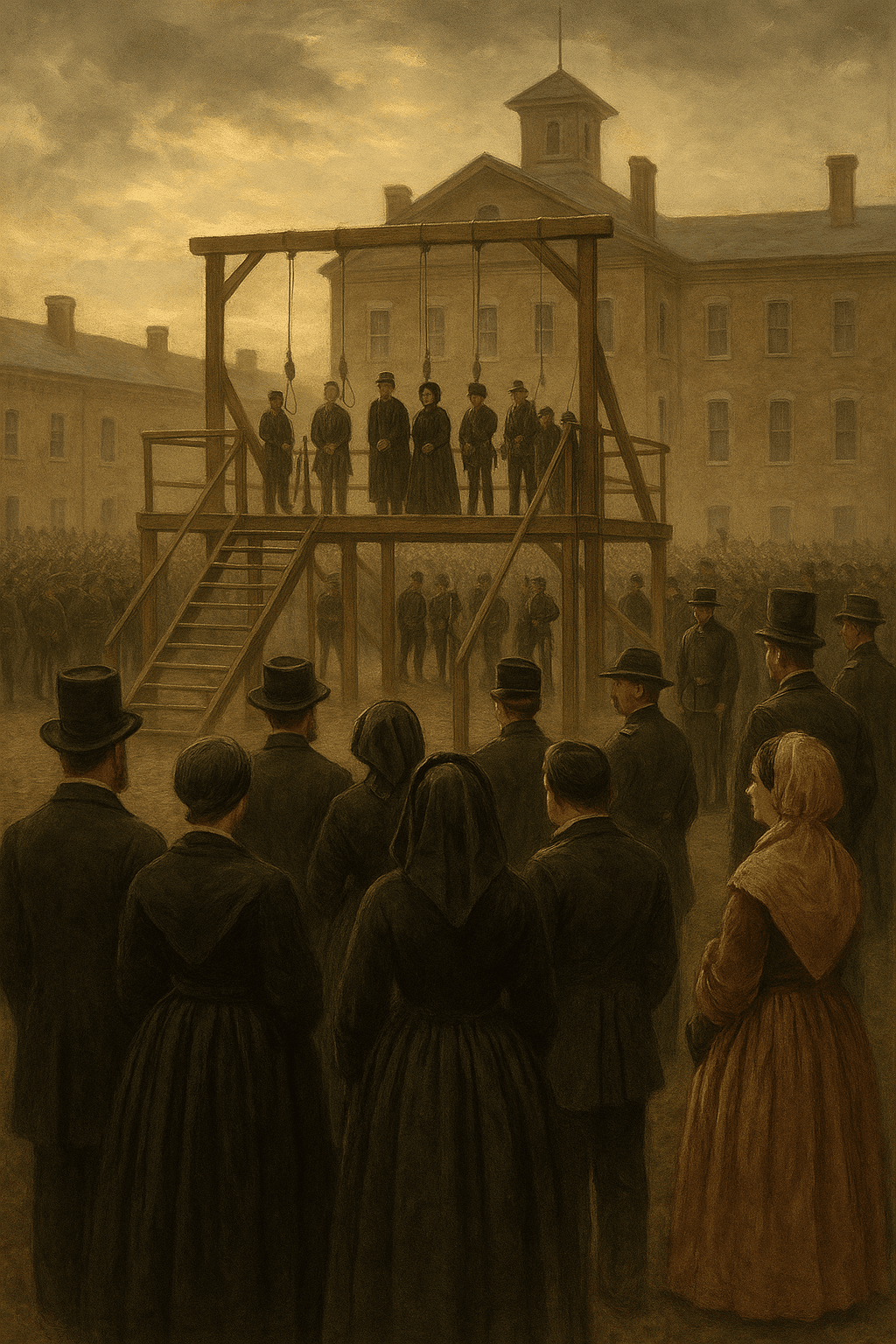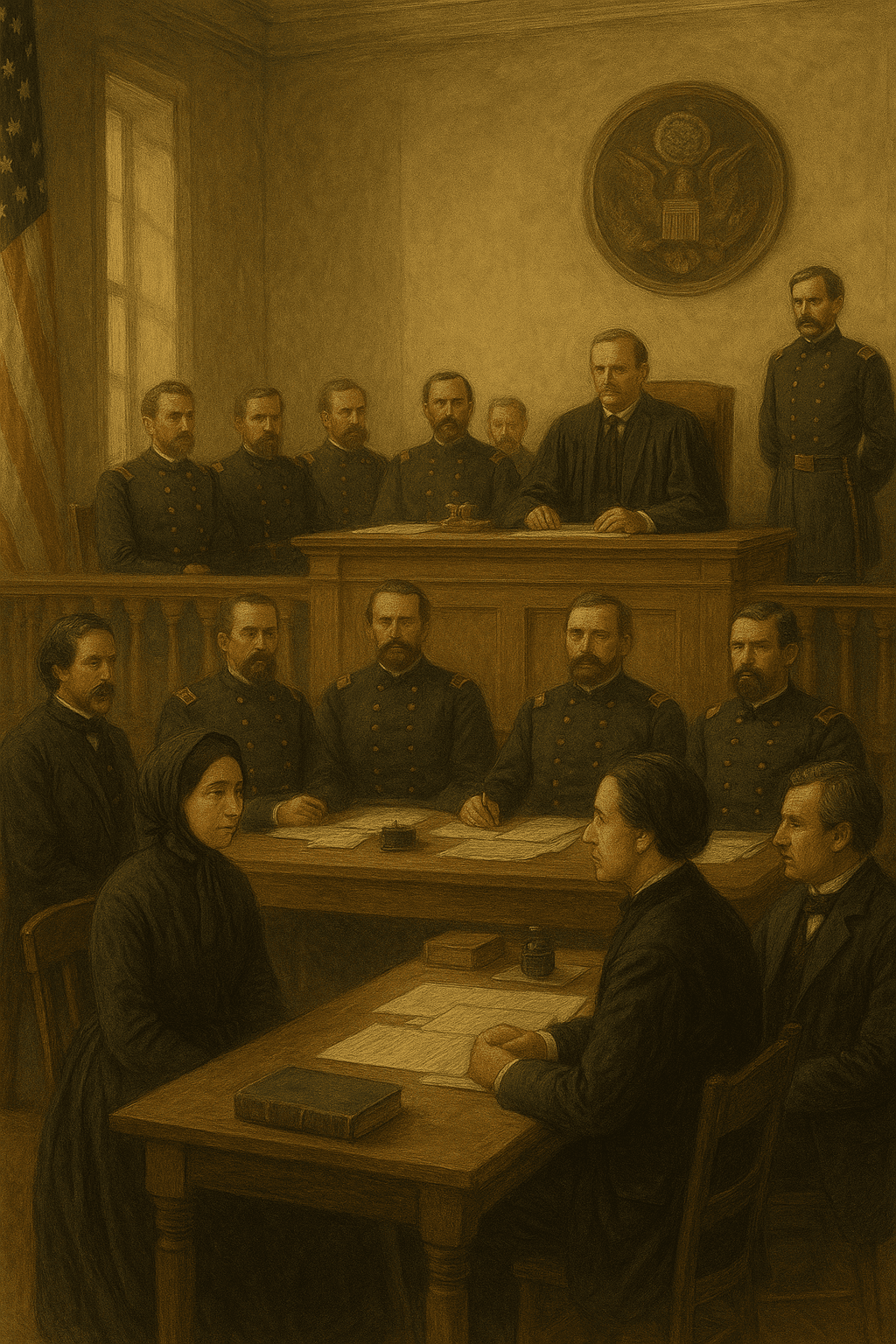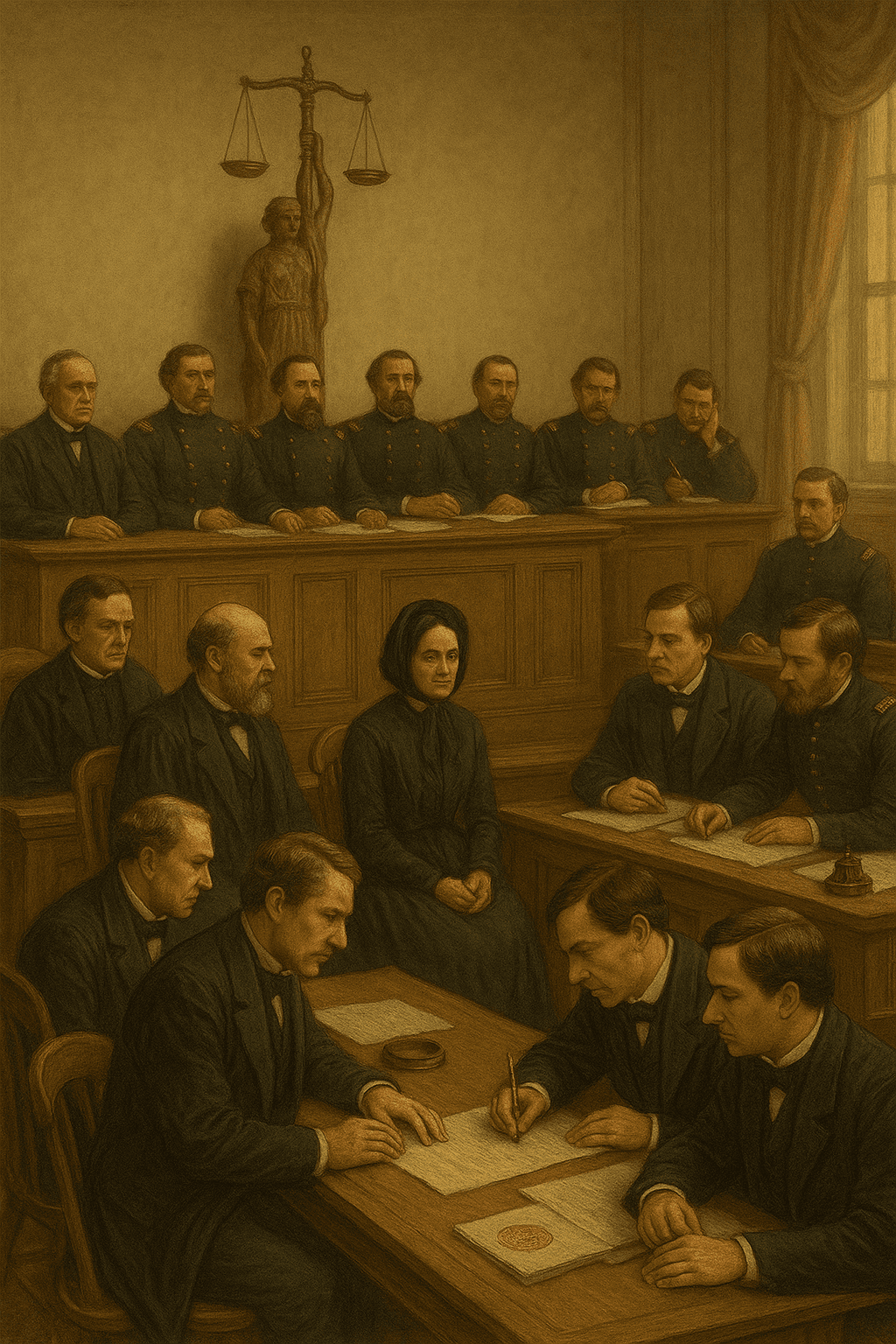On July 7, 1865, Mary Surratt became the first woman executed by the United States federal government when she was hanged at the Washington Arsenal for her alleged role in the conspiracy to assassinate President Abraham Lincoln. The 42-year-old boarding house owner was convicted by a military tribunal of harboring conspirators and assisting in the plot that led to Lincoln's death at Ford's Theatre on April 14, 1865. Surratt maintained her innocence until the end, and her case became a lightning rod for debates about justice, gender, and the rule of law in the traumatic aftermath of the Civil War.

Mary Surratt's trial before a military commission rather than a civilian court sparked immediate controversy, as critics argued that civilians should not be subject to military justice during peacetime. The evidence against her was largely circumstantial, based on her ownership of a boarding house where conspirators met and her alleged knowledge of the assassination plot.

In the days leading up to her execution, numerous appeals for clemency poured in from across the country, with many citizens arguing that executing a woman would be barbaric and un-American. Her daughter Anna made desperate pleas to President Andrew Johnson, even attempting to storm the White House on the day of execution to beg for her mother's life.
Despite the public pressure, President Johnson refused to commute Surratt's sentence, later claiming he never saw a clemency petition that five members of the military commission had allegedly signed on her behalf. This controversy would haunt Johnson's presidency and fuel ongoing debates about whether Surratt received fair treatment under the law.

Mary Surratt's execution remains one of the most controversial applications of capital punishment in American history, raising enduring questions about due process, the death penalty, and gender in the justice system. Her case highlighted the tensions between justice and vengeance in the aftermath of national trauma, demonstrating how extraordinary circumstances can lead to extraordinary legal measures that compromise civil liberties during times of national crisis.